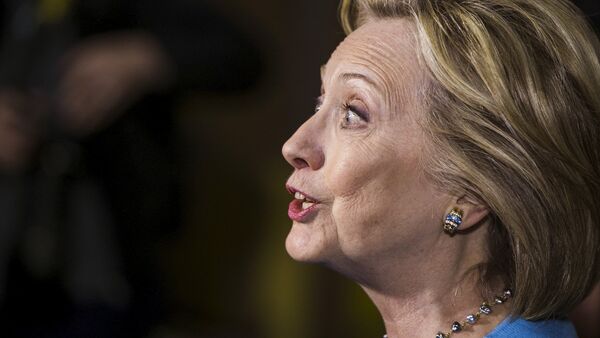Here are some controversial facts we've learned from emails addressed to and sent by US presidential candidate Hillary Clinton:
Revelation 1: Google and Al-Jazeera interfered in the Syrian events and collaborated with each other in an attempt to overthrow Syrian President Bashar-al-Assad.
According to an email from the head of "Google Ideas" Jared Cohen, received by the US State Department in 2012, the company was trying to support insurgents by urging representatives of Syrian power structures to take the side of the opposition.
"Given how hard it is to get information into Syria right now, we are partnering with Al-Jazeera who will take primary ownership over the tool we have built, track the data, verify it, and broadcast it back into Syria," Cohen wrote in the e-mail.
An e-mail on the issue was written by Clinton family friend Sidney Blumenthal. He wrote that France was trying to establish control over Libyan oil immediately after the coup in 2011. Moreover, France was exerting pressure on the new Libyan government and demanding exclusive rights to 35% of the country's oil industry in exchange for political support.
"In return for this assistance, the DGSE officers indicated that they expected the new government of Libya to favor French firms and national interests, particularly regarding the oil industry in Libya," the email said.
Revelation 3: The US tried to conceal the fact that it helped Turkey to fight the Kurdistan Workers' Party.
An email addressed to Clinton said that the US government tried to exert pressure on the Washington Post to amend an article on cooperation between American and Turkish intelligence in the fight against Kurdish rebels.
"Despite our efforts, WaPo will proceed with its story on US-Turkey intel cooperation against PKK," the message said, referring to the Kurdistan Workers' Party. "They will not make redactions we requested so expect the Wikileaks cables to be published in full."
Revelation 4: The last revelation is more of a personal nature and concerns Clinton's poor knowledge of modern technology. Thus, her email correspondence shows that she frequently needed assistance with daily activities such as faxing, charging her iPad or searching for a Wi-Fi network.



